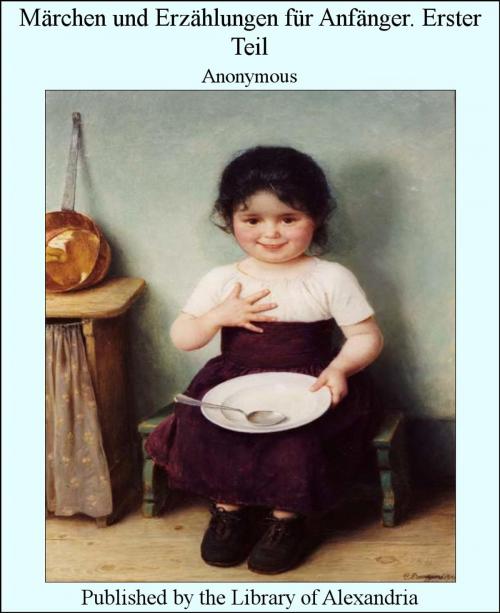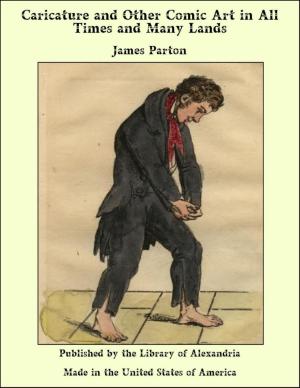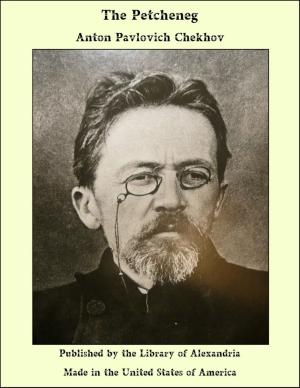Märchen Und Erzählungen Für Anfänger. Erster Teil
Nonfiction, Religion & Spirituality, New Age, History, Fiction & Literature| Author: | Anonymous | ISBN: | 9781465520401 |
| Publisher: | Library of Alexandria | Publication: | March 8, 2015 |
| Imprint: | Language: | German |
| Author: | Anonymous |
| ISBN: | 9781465520401 |
| Publisher: | Library of Alexandria |
| Publication: | March 8, 2015 |
| Imprint: | |
| Language: | German |
With the introduction of the study of German into so many of our public and private schools, has arisen the need of a reader which can advantageously be used for beginners of all ages. The aim of this work is to present a series of tales, interesting enough to stimulate the curiosity of even the youngest pupils, yet so easy as not to discourage anyone at the very outset. The stories have therefore been narrated in the simplest manner possible, and every new word introduced has purposely been repeated frequently enough in the following sentences to insure its being remembered by even dull pupils. All idioms have also been used repeatedly with the same object in view, and as none but ordinary words and expressions have been introduced, the pupils soon acquire a sufficient vocabulary to serve all their purposes, and are able to read and understand easy German prose at sight. These stories, of which every word has its special purpose, have been used with excellent results with pupils of all ages; and while complete success depends greatly upon the teacher, the method is so simple and practical that it can profitably be used by pupils who wish to study alone. The author's plan of proceeding, which, of course, varies greatly to suit the age and intelligence of the pupils, can briefly be outlined as follows, using the introductory paragraph of the first story as an example: The first sentence is read aloud, slowly and distinctly, and the pupils are taught to repeat it correctly. As this is used for the first German lesson, with pupils who know nothing whatever of the language, every word is translated. Then the pupils are called upon to read and translate the words, in any order, as rapidly pointed out by the teacher. A few moments' rapid drill enables them to memorize these few words, whose similarity to the English equivalents cannot but appeal to them. The teacher next reads the second sentence, which the pupils repeat, and they translate all the words which occurred in the previous sentence, the teacher supplying only the translation of new words, or of such as do not seem to convey their own meaning to unaccustomed ears. When the reading and translating drill on the first paragraph is finished, the books are closed, and the pupils are questioned in German, none but the words already given being used, and the questions being framed at first so as to supply their own answer, as it were. Example: Query, »War Jakob ein Mann?« Answer, »Jakob war ein Mann
With the introduction of the study of German into so many of our public and private schools, has arisen the need of a reader which can advantageously be used for beginners of all ages. The aim of this work is to present a series of tales, interesting enough to stimulate the curiosity of even the youngest pupils, yet so easy as not to discourage anyone at the very outset. The stories have therefore been narrated in the simplest manner possible, and every new word introduced has purposely been repeated frequently enough in the following sentences to insure its being remembered by even dull pupils. All idioms have also been used repeatedly with the same object in view, and as none but ordinary words and expressions have been introduced, the pupils soon acquire a sufficient vocabulary to serve all their purposes, and are able to read and understand easy German prose at sight. These stories, of which every word has its special purpose, have been used with excellent results with pupils of all ages; and while complete success depends greatly upon the teacher, the method is so simple and practical that it can profitably be used by pupils who wish to study alone. The author's plan of proceeding, which, of course, varies greatly to suit the age and intelligence of the pupils, can briefly be outlined as follows, using the introductory paragraph of the first story as an example: The first sentence is read aloud, slowly and distinctly, and the pupils are taught to repeat it correctly. As this is used for the first German lesson, with pupils who know nothing whatever of the language, every word is translated. Then the pupils are called upon to read and translate the words, in any order, as rapidly pointed out by the teacher. A few moments' rapid drill enables them to memorize these few words, whose similarity to the English equivalents cannot but appeal to them. The teacher next reads the second sentence, which the pupils repeat, and they translate all the words which occurred in the previous sentence, the teacher supplying only the translation of new words, or of such as do not seem to convey their own meaning to unaccustomed ears. When the reading and translating drill on the first paragraph is finished, the books are closed, and the pupils are questioned in German, none but the words already given being used, and the questions being framed at first so as to supply their own answer, as it were. Example: Query, »War Jakob ein Mann?« Answer, »Jakob war ein Mann















